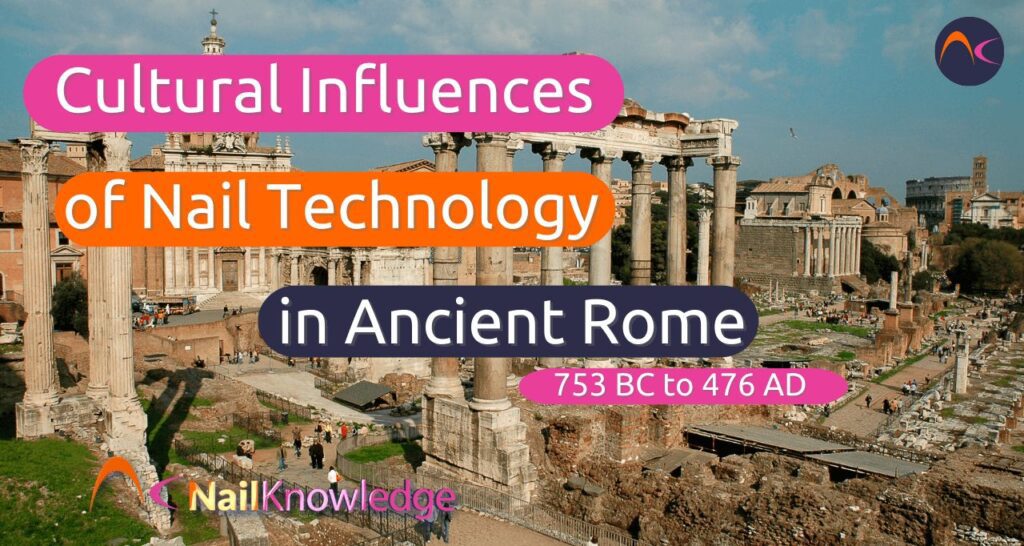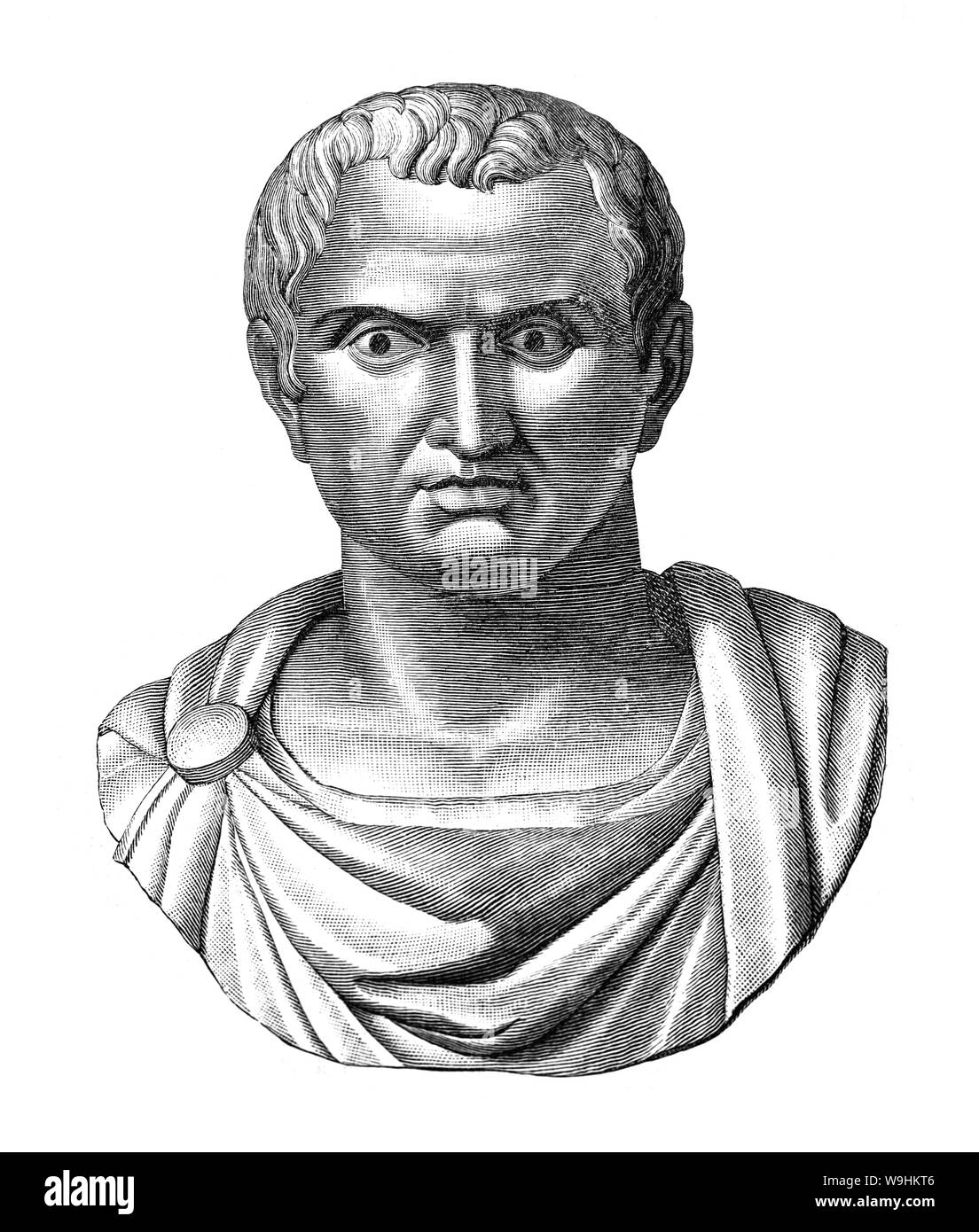Pompey the Great: The Rise and Fall of a Roman Titan
The Early Life of Pompey
Gnaeus Pompeius Magnus, better known as Pompey the Great, was one of the pillar figures in the late Roman Republic, a distinguished military and political leader whose life was marked by a series of remarkable achievements and ultimate downfall. Born on September 29, 106 BCE, in the Italian town of Picenum, Pompey hailed from an equestrian family of some prominence. His father, Pompeius Strabo, was a notable military leader, setting a foundation of martial prowess that Pompey would build upon throughout his life.
Pompey's early exposure to military campaigns alongside his father taught him the intricacies of strategy and combat. His early years were characterized by a voracious ambition and a shrewd understanding of political dynamics, elements that would come to define his career in the Roman political arena.
The Ascent to Power
Pompey's rise to power was meteoric, and by the age of 23, he had already earned the moniker “Magnus” or “The Great,” a title awarded to him by the dictator Sulla after defeating the Marian forces in Africa. This spectacular performance in the African campaign established his reputation as a brilliant general, capable of commanding respect and fear on the battlefield. His victories secured him a triumph in Rome, a rare honor for someone of his age and rank, pushing him into the upper echelons of Roman political life.
His military brilliance was further demonstrated in his campaigns against the pirates in the Mediterranean, a pervasive threat to Roman trade and security. By 67 BCE, Pompey was granted unprecedented powers under the lex Gabinia, allowing him to eradicate piracy within three months. This military success not only cemented his status as an indispensable asset to Rome but also showcased his ability to wield power effectively.
Pax Romana and Political Machinations
Pompey's victories expanded far beyond mere combat as he sought to establish stability across the Roman territories. His campaign against Mithridates VI of Pontus further expanded the influence of Rome into the East. By 63 BCE, Pompey had established Roman control over Judea, culminating in the capture of Jerusalem, and reorganizing the east into the provinces of Bithynia and Pontus, Syria, and Cilicia, thus extending Roman interests and securing the eastern boundaries of Rome.
Despite his military accomplishments, Pompey’s political career was fraught with challenges and rivalries. His involvement in the First Triumvirate, a political alliance with Julius Caesar and Marcus Licinius Crassus in 60 BCE, was an attempt to solidify power and influence. This informal pact was driven by mutual convenience rather than trust, as each member sought to leverage the other's strengths for personal gain. Pompey married Caesar’s daughter Julia to cement this alliance, underscoring the complex intertwining of personal and political strategies prevalent in Roman governance.
The Fracture of Alliances and Rising Tensions
However, the stability of the Triumvirate was short-lived. The death of Crassus in 53 BCE and the tragic demise of Julia unraveled the alliance, resulting in strained relations between Pompey and Caesar. The competition for power and influence morphed into a direct political opposition, with the Senate leveraging Pompey’s fame and military prowess against Caesar's growing influence.
The Senate, wary of Caesar's ambitions and concerned about the balance of power in Rome, aligned itself increasingly with Pompey. In 49 BCE, Caesar's crossing of the Rubicon River—a bold, illegal move into Roman territory with his army—signaled the start of a civil war. With Rome in political chaos, Pompey was appointed as defender of the republic, tasked with thwarting Caesar’s rise. Their rivalry culminated in the fateful Battle of Pharsalus in 48 BCE, a decisive confrontation where Caesar emerged victorious due to his strategic genius.
Following his defeat, Pompey fled to Egypt, seeking refuge in a country he had once supported. However, in a twist of fate, Pompey was assassinated upon arrival by advisors to the Egyptian pharaoh Ptolemy XIII, a move aimed at currying favor with Caesar. Thus ended the life of Pompey the Great—an illustrious general, a shrewd politician, and one of the most complex figures of ancient Rome.
In modern assessments, Pompey's legacy is marked by his strategic brilliance, both in warfare and politics. Yet, it is also tainted by his weaknesses in alliance-building and underestimation of rivals. His story reflects the volatility of political life in the late Roman Republic and the calculated typhoon of ambition and betrayal that characterized Rome’s transition from a republic to an imperial powerhouse.
The Aftermath of Defeat: Pompey's Legacy
The defeat and subsequent assassination of Pompey the Great marked a watershed moment in Roman history, altering the trajectory of the Roman Republic and setting the stage for the rise of the imperial system under Caesar. Yet, Pompey's legacy, though clouded by his ultimate defeat, remains a testament to his profound influence on Roman military strategy, political maneuvering, and the complex machinations of Roman governance.
Pompey's contributions to the Roman state were multi-faceted. As a general, he demonstrated exceptional skill in organizing and conducting military campaigns, expanding the borders of the Roman Republic, and ensuring its dominance over the Mediterranean and Eastern territories. His swift and decisive actions against piracy and his success in the Mithridatic Wars secured essential trade routes and resources for Rome, significantly enriching the state’s coffers and bolstering its economic stature.
Reform and Administration
Beyond his military feats, Pompey's impact was also felt in the administrative realms. He took considerable measures to reorganize the newly acquired provinces, thereby implementing Roman law, governance structures, and securing loyalties from local rulers. These actions laid foundational stones for how the territories were managed for centuries to come, ensuring a degree of stability and continuity that benefitted Rome and its allies.
Pompey's efforts in governance extended to social reform, as he worked on consolidating and distributing land for his veterans—a move aimed at maintaining their loyalty and ensuring social stability. This redistribution of land had significant implications for the rural economy of Italy, highlighting Pompey's vision of creating a sustainable Roman society, supported by veteran legions deeply loyal to him and the state.
His Place in Roman Society
Socially, Pompey’s standing nonetheless faced more hurdles back in Rome. Despite his successes, he struggled with his image among the Roman elite, who were often suspicious of his ambition and the influence he wielded. His many triumphs and popularity amongst the rank and file of the legions rendered him a figure both revered and feared, a personification of the tension that often existed between ambitious generals and the traditional Roman aristocracy.
Relations with the Senate were naturally complex, characterized by a blend of mutual dependence and suspicion. The Senate often saw Pompey as a necessary force against external threats and internal instability but remained wary of too much power being concentrated in a single individual's hands. Conversely, Pompey required senatorial support to lend legitimacy to his campaigns and political maneuvers, despite sometimes feeling constrained by the very institution that provided him with authority.
Pompey’s Historical Reassessment
In hindsight, Pompey the Great has been subject to varied historical interpretations. Early narratives often painted him through the lens of his rivalry with Caesar, overshadowing his own achievements and reducing his legacy to that of a foil to Caesar’s rise. However, revisionist historians argue that Pompey’s statesmanship and military genius deserve recognition independent of his adversaries.
The reevaluation of Pompey’s contributions has brought to light his diplomatic skills, particularly how he navigated complex international relationships and the Roman political landscape. His alliances with local Eastern rulers, balanced with military dominance, projected a nuanced method of cultural engagement and governance that was pivotal for maintaining control in diverse regions.
Moreover, Pompey’s strategic foresight in preempting military threats ensured Rome’s security and combated emerging geopolitical threats in the Mediterranean and beyond. Such actions have been reevaluated as early examples of what could be considered foreign policy strategies, highlighting Pompey’s role in shaping Rome’s approach to international relations.
The Context of Roman Politics
The period during which Pompey excelled was one of significant turbulence. The late Roman Republic was rife with internal strife, marked by increasing disparities between the ruling class and the general populace, economic challenges, and social uproar. Within this framework, Pompey emerged as a stabilizing force, albeit one whose aspirations exceeded what the traditional structures of the Republic could accommodate.
His life and career serve as an excellent case study of the push-and-pull between Republic ideals and individual ambition—a dynamic that slowly eroded republican values and paved the way for the consolidation of imperial power. Pompey, perhaps more than he recognized, was both a product and a catalyst of his time, embodying the tensions and transitions that characterized the waning years of the Republican system.
This exploration into Pompey the Great’s life affirms his place as more than a mere stepping stone to the history that Julius Caesar famously carved out in his wake. Instead, he stands as a key player whose own merits and failings shaped the Roman world in significant and enduring ways. His story is one of ambition, power, and the tangible impact of an individual in the vast tapestry of history.
Pompey in Popular Culture and Memory
In the centuries since his death, the figure of Pompey the Great has been immortalized in various forms, serving as a subject of interest for historians, playwrights, and artists alike. His life and exploits, entangled with both glory and tragedy, make for compelling narratives that have captured the public imagination over generations.
In literature, Pompey’s story has been portrayed in various contexts. William Shakespeare's plays, most notably "Julius Caesar" and "Antony and Cleopatra," though not focused on Pompey himself, offer glimpses into the milieu of tensions and transitions of which he was a part. The dramatic depiction of Roman figures from this epoch often highlights the intricate relationships that defined the political landscape, where allegiance was precarious and power was vehemently contested.
Film and television have also explored Pompey's legacy. Modern portrayals, such as those in popular historical series, depict his character with varying degrees of accuracy, often positioning him as a tragic hero undone by both circumstance and his own limitations. These portrayals contribute to the ongoing evaluation and reimagining of historical narratives, adding layers of understanding to his role in Roman history.
The Complexity of Pompey’s Character
Pompey's character, as revealed through historical records and subsequent interpretations, offers a complex portrait of a man torn between extraordinary capability and considerable vulnerabilities. While undeniable as a tactician and military leader, his political acumen was occasionally ambiguous, vacillating between adeptness and shortsightedness depending on the challenge he faced.
His personal demeanor, described as both affably charismatic and occasionally aloof, suggests a man who understood his influence yet perhaps underestimated the dynamic and often volatile nature of political friendships and rivalries in Rome. The intricacies of his character are further evidenced in his dealings with both allies and adversaries, reflecting a depth that intrigues historians and enthusiasts of Roman history alike.
Despite his glaring achievements, Pompey struggled in arenas outside of his traditional strengths. His ability to engage with the public was sometimes marred by the conflicting demands of maintaining loyalty from his legions, keeping Senate factions amicable, and countering the growing populism embodied by figures like Julius Caesar. These dynamics paint Pompey not just as a historical figure, but as a nuanced individual grappling with the pressures of leadership amidst monumental change.
Lessons from Pompey’s Life
Pompey the Great's story contains lessons relevant even today. His experiences underscore the importance of balance in leadership—knowing when to build alliances and when to assert authority decisively. His military prowess, though remarkable, was not matched by equal political foresight, a dichotomy that offers a cautionary tale about the limits of power based solely on military might.
Moreover, Pompey's trajectory highlights the complexities inherent in governance, especially in a system transitioning from one form of political structure to another. His life emphasizes the need for adaptability in leadership styles and strategies in response to changing political landscapes and the necessity of securing a firm support base to uphold any lasting influence.
The Enduring Impact of Pompey the Great
To modern observers, Pompey the Great remains a pivotal figure whose legacy has endured through his substantial contributions to both Rome and the broader contours of Western civilization. His actions during a time of unprecedented change helped shape the foundations of Roman governance and expansion that would influence subsequent generations.
In reflecting on Pompey's impact, it becomes evident that his legacy is a tapestry interwoven with both his personal ambitions and the larger narrative of a republic in flux. His life, while ultimately overshadowed by more dominant successors like Caesar and Augustus, is nonetheless a critical thread in the historical fabric of Rome’s transition to empire.
In conclusion, the life of Pompey the Great offers a window into the complexities of leadership, the nuanced dance of power, and the timeless nature of political ambition. His story, characterized by both triumph and tragedy, continues to resonate as an illustration of how individuals can influence the course of history, consciously or not, within the grand theater of human civilization. Through his achievements and missteps, Pompey embodies the eternal human struggle to shape the world while navigating the relentless tides of change.



















Comments